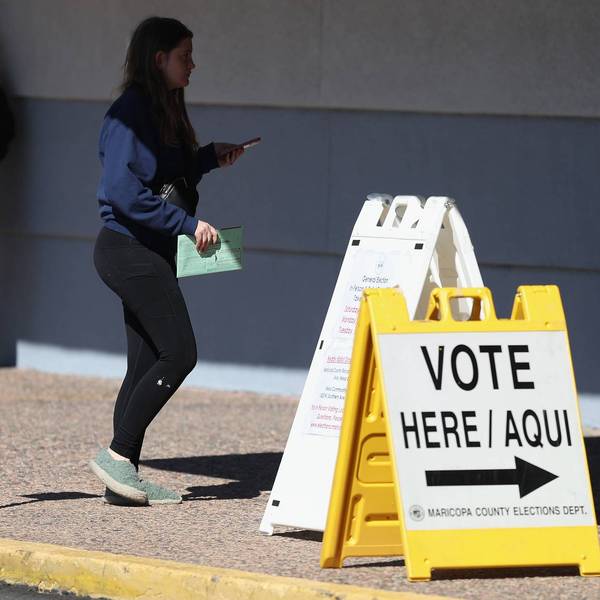Bucking the nation-wide trend of eroding voting rights, the state of Oregon on Tuesday signed into law a bill that will make it easier to cast a ballot--by implementing the country's first automatic registration for eligible voters when they get drivers' licenses and identification documents.
The "Motor Voter" legislation directs the Department of Transportation to "provide Secretary of State with electronic records containing legal name, age, residence and citizenship information and electronic signature of each person who may qualify as elector as prescribed by secretary by rule."
This means that any eligible voter who is not already registered but has done business with the DMV will automatically receive a ballot in the mail 20 days before the state's next election.
The legislation, which will give state residents the option of opting out, is expected to add approximately 300,000 voters.
A wave of legislative attacks on voting rights that has swept the nation has disproportionately blocked poor people, people of color, young people, and seniors across the U.S. from casting ballots. As the Editorial Board of the Washington Post pointed out, Oregon's new measure "won't be perfect" because "many poor and minority voters lack state-issued identification, and they could fall through cracks in Oregon's automatic registration."
"When you make it convenient to vote, people participate," said Laura Terrill Patten, executive director of Planned Parenthood Advocates of Oregon. "We are thrilled about the passage of this bill and the opportunity to get a ballot in the hands of all eligible Oregon voters. While other states are rolling back access to voting rights and women's health, Oregon continues to lead the way by making voter registration more accessible, more accurate and more secure."
While this is the first such measure in the U.S., automatic registration is more common in other countries. A 2009 report by the Brennan Center for Justice notes that in Argentina, Australia, Canada, France, and the Canadian provinces of British Columbia, Ontario, and Quebec, voter registration is "virtually automatic." All of these countries have far higher registration rates than the United States.



